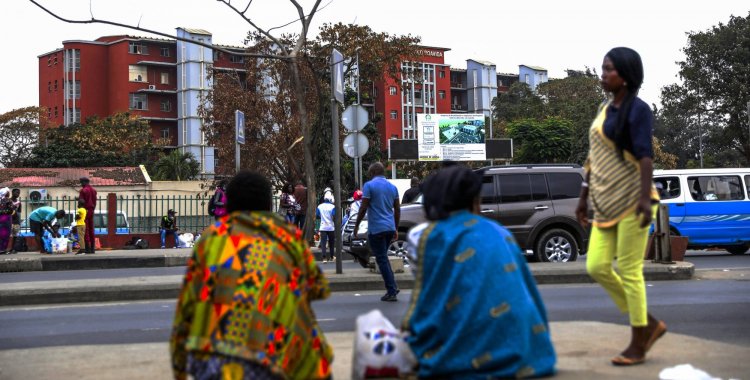From the municipality of Cacuaco, through the Island of Luanda, Cazenga and even Viana, the people of Luanda disagree on the proposal to divide the capital into two provinces - Luanda and Icolo e Bengo - an initiative of the Popular Movement for the Liberation of Angola (MPLA) that has supporters and detractors.
However, the difficulties of basic sanitation, access to transport, energy supply, education and poverty are points of consensus.
“It makes no sense to divide (Luanda) this way,” Anabela Fernandes, a 21-year-old student living in Cacuaco, the northernmost municipality of Luanda, told Lusa, defending the commitment to improving mobility and education and health services.
Ana Marisa Chicanda, who, alongside her friend Anabela, had been waiting for over 30 minutes for a taxi (a public passenger transport system also known as a candongueiro) under a pedestrian bridge in Cacuaco, applauded the division of Luanda.
For the student, the MPLA initiative should help reduce the lack of taxis: “Its division is good, because it will be easier for people to take a taxi to their destination”, she justified, while her friend disagreed.
The division of Luanda is not a priority, considered logistician Cláudio Leite, pointing to the need to disperse the population density across the current municipalities, followed by a better distribution of wealth and incentives for housing at a local level.
“If we disperse the population in the territory that is now Luanda, I think that would be the solution and not necessarily creating another province as a solution, because if we look at it, Luanda’s economy moves in another place”, he said.
Cláudio, who works in a supermarket in Cacuaco, considered that the local authorities are a priority for the country, because the approaches “have been very politicized”, defending the improvement of transport and sanitation.
Sitting on one of the benches at the Mural dos Artistas, on Luanda Island, Adriano Baptista, 36, said that the proposal to divide Luanda is an “added value” for the people of Luanda, because it should lead to better decisions to resolve the current precarious conditions in the city.
“I believe that this division will be an added value for the residents and the people of Luanda, especially for improving basic sanitation and the precarious conditions we are experiencing,” he said.
More attention to the poor was advocated by Mateus Luis, 76, a resident of Luanda Island, who criticized the extreme poverty that affects thousands of Angolans almost 50 years after independence.
“If we have actually had independence for all this time, why are there still people begging?” asked the retiree, who said he was in favor of dividing Luanda if it would improve the lives of its citizens.
On 7th Avenida do Cazenga, one of the main roads in the municipality that has been transformed into a huge sewage pit, stands Filipe Fragoso, 57, who disapproved of the initiative to divide the capital, defending local authorities for the election of municipal governments.
“We also have other problems, there is no public transport and getting a taxi is a daily struggle”, he lamented.
Viana is now considered the most populous municipality in Luanda and its headquarters is very busy every day due to the concentration of the main services, including banks, schools and training centres, together with the municipal administration.
Moisés Bento, a student, and Joaquim Silva, an entrepreneur, from Viana, acknowledge the lack of transport to meet the population’s demand, but at the same time, they have opposing opinions about the division of the capital.
“I think it’s a good thing (to divide Luanda), because the province has a lot of people and when they are divided it will be more beneficial”, said Moisés, contradicted by Joaquim, who defends the creation of local authorities.
With 18 provinces, the young entrepreneur continued, “we are already having difficulty surviving and meeting some needs, now imagine adding three more, for me it’s not beneficial”, he said.
The MPLA initiative, now introduced in parliament and rejected by the opposition, should give rise to the provinces of Luanda and Icolo e Bengo, both totaling 23 municipalities and 24 communes, and aims to “bring services closer to the citizens”.







